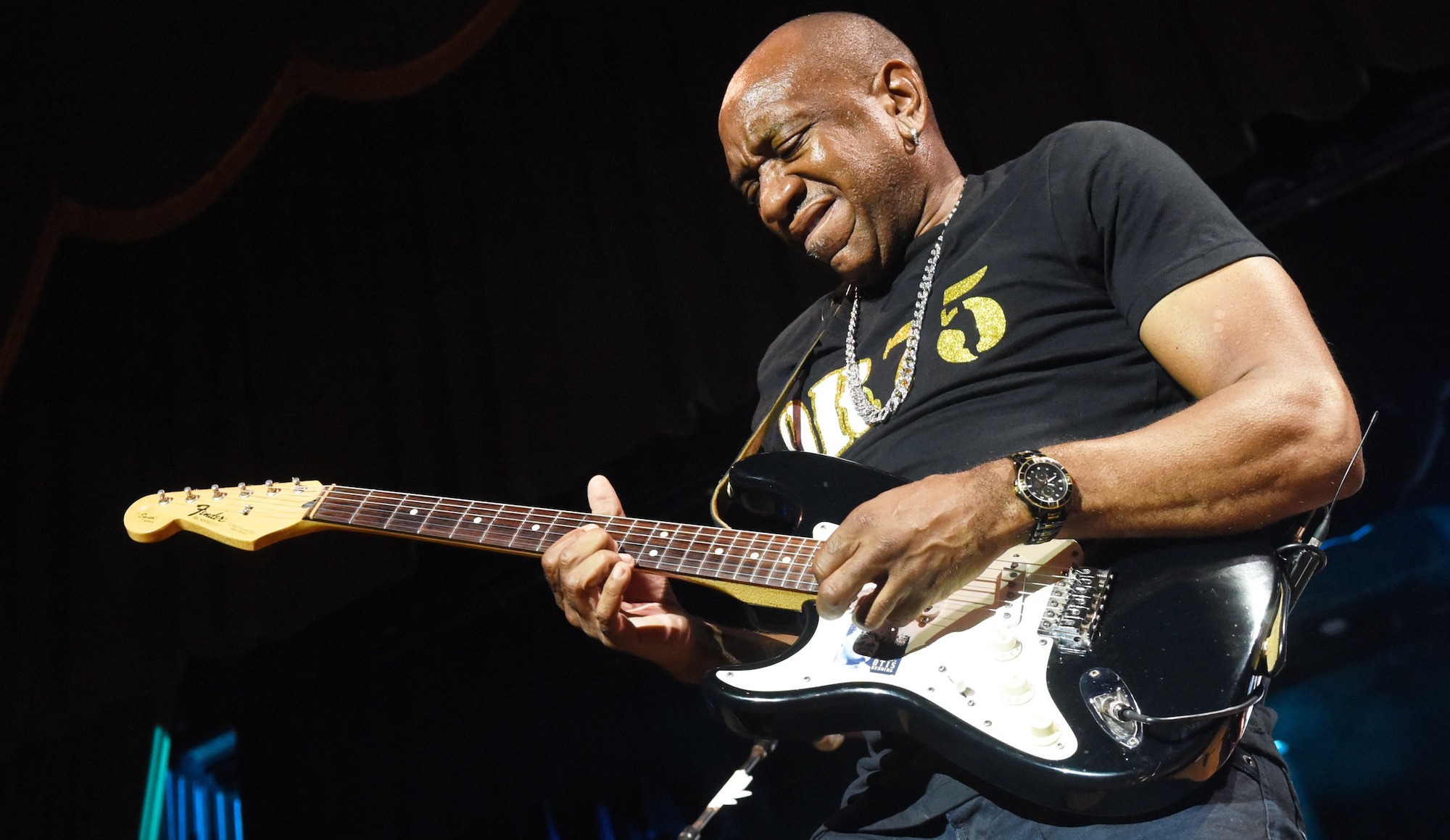Otis Redding III, guitarist and son of legendary soul singer Otis Redding, dies at 59
Aside from his extensive work promoting the musical legacy of his late father, Otis Redding III also played guitar in the The Reddings, and with soul veteran Eddie Floyd

Otis Redding III, a seasoned guitarist and the son of soul legend Otis Redding, has died at the age of 59.
Redding's death was confirmed on Wednesday (April 19) by his family via a Facebook post from The Otis Redding Foundation. He had been suffering from cancer.
"It is with heavy hearts that the family of Otis Redding III confirms that he lost his battle with cancer last evening at Atrium Health Navicent in Macon, Georgia," the post reads. "Otis was 59 years old. Please keep our family in your prayers at this time and please respect our privacy as we consume this huge loss."
Born in December 1963 in Macon, Georgia, Otis Redding III lost his father – who wrote and sang the immortal (Sittin' On) The Dock of the Bay, among a number of other soul classics – in a plane crash when he was just three years old.
The enormous childhood loss did not, however, stifle his appetite for music, and by a young age Redding had taken up the guitar.
While still in his teens, Redding formed a group called The Reddings with his brother, Dexter, and a cousin, Mark Lockett. One of their early singles, 1980's Remote Control, became a top 10 hit on the Hot Soul Singles chart, and made the lower reaches of the Billboard Hot 100.
After The Reddings split up in 1988, Redding briefly joined soul veteran Eddie Floyd's band as his guitarist, but on one condition.
All the latest guitar news, interviews, lessons, reviews, deals and more, direct to your inbox!
“He [Floyd] said, ‘You can play guitar with me, but you’re going to have to sing a few of your dad’s songs,’” Redding told WCSH-TV in 2018. “I was like, ‘Huh? I don’t sing,’ you know. And he was like, ‘Well, you’re going to sing Dock of the Bay with me tonight.’”
From then on, Redding began to more frequently play and sing his father's songs, working to – with the help of his family's Otis Redding Foundation – preserve the musical legacy of his father. Redding also worked with the Foundation to organize summer camps that help teach children to play music, and served as the board president for the local chapter of Meals on Wheels.
Though his own career was outshined by that of his famous father, Redding maintained that he was grateful for the opportunity to perform the elder Redding's music.
“No matter how hard I try to do my own thing, you know, it’s like …‘sing one of your daddy’s songs,’” he told WCSH-TV. “So I go ahead and do what people want, and I live with it. But I’m not under any pressure and I don’t put myself mentally under any pressure to go begging for record deals.”
Jackson is an Associate Editor at GuitarWorld.com. He’s been writing and editing stories about new gear, technique and guitar-driven music both old and new since 2014, and has also written extensively on the same topics for Guitar Player. Elsewhere, his album reviews and essays have appeared in Louder and Unrecorded. Though open to music of all kinds, his greatest love has always been indie, and everything that falls under its massive umbrella. To that end, you can find him on Twitter crowing about whatever great new guitar band you need to drop everything to hear right now.

